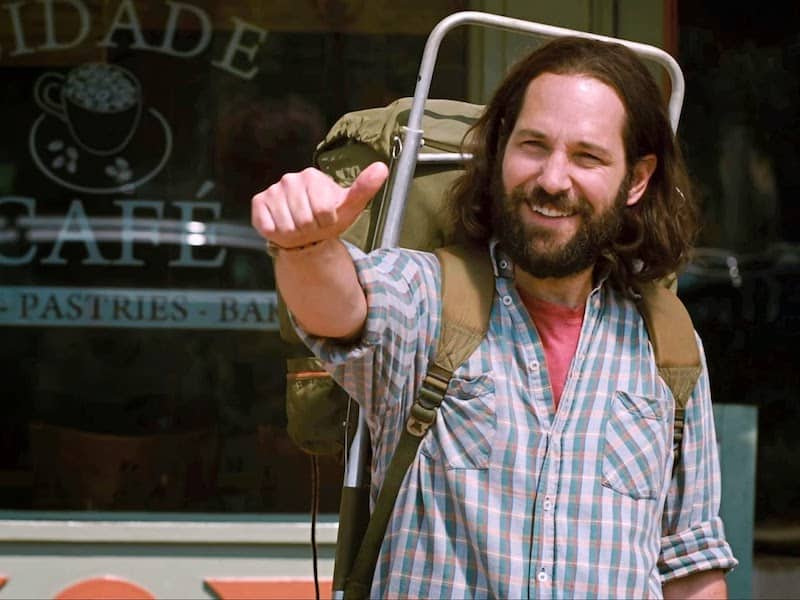
Our Idiot Brother floats by on the genial charms of Paul Rudd, an apparently nice guy in real life who’s playing just about the nicest, most pleasant guy in the world. That sounds like a recipe for ho-hum disaster, but Rudd happens to be ridiculously adept at selling you two bags of goods at once, imbuing that geniality with a fount of deep tangible feeling.
Audiences accustomed to Judd Apatow-era Rudd might forget that he’s acted in Neil LaBute plays and films (before LaBute turned into a director-for-hire) and once played F. Scott Fitzgerald’s Nick Carraway in a Great Gatsby adaptation made for TV. The guy has dramatic chops, and he’s one of the few actors in Hollywood who can naturalistically flow them into a deceptively low-key framework.
Here, Rudd stars as Ned – or Nedley, as mom calls him – a lovable, trusting hippie farmer who sells a cop some weed and winds up in jail. After his release, with nowhere to go, Ned moves in first with mom and then with his three high-strung sisters in succession.
They are housewife Liz (Emily Mortimer) – stuck in an unhappy marriage to lout Dylan (Steve Coogan) – the uptight go-getter journalist Miranda (Elizabeth Banks) and the free-spirited, promiscuous Natalie (Zooey Deschanel). When he’s not infuriating the trio with his naiveté and total lack of a brain-to-mouth filter, Ned offers some important lessons on how to live life joyfully stress free.
Directed by Jesse Peretz, from a screenplay by his sister Evgenia Peretz and her husband David Schisgall, Our Idiot Brother is in many respects one of those run-of-the-mill quirky family indie comedies. The everyday touches are here – awkward familial gatherings, broad comedy, emotional breakdowns, an adorable nephew etc.
At the same time, the actresses and Coogan are largely wasted, subjected to playing one (or occasionally two) dimensional archetypes that comprise a sort of Greek chorus reacting to good old Nedley.
That’s not to say Deschanel isn’t charming, Banks isn’t charismatic and Mortimer isn’t sympathetic. They are, mostly because it’d be hard to turn off qualities so intrinsic to the performers. Yet, their individual dramas – an illicit pregnancy, a work conflict, a cheating spouse – are dealt with in an offhand, sitcom-y fashion that trivializes their impact.
At the end of the day, the filmmakers only seem to care about Ned and the ways he maintains a steadfast front of optimism and earnestness even when all hope seems lost. Fortunately, a bearded, long-haired, Crocs-clad Rudd just owns the part and makes it all worthwhile. His Ned spreads good cheer and almost accidentally thoughtful advice to his fractured family, in between some funny faux pas. There’s never a moment you don’t want to see more of him.
Ned is down on his luck and knows it. Life as a wandering hippie farmer might even be the best things can get. But he’s fine with that, approaching every day with the optimism of a man who likes who he is and where he’s going (or not going). That might make him a deadbeat, or a drain on society, or whatever, but you can’t put a price on self-contentment. Like Jeff Bridges’s Dude, he keeps on keeping on for the rest of us. And he’s no idiot.
The Upside: Paul Rudd is likable and compelling as Ned. He makes the movie work.
The Downside: The various small dramas that play out between the sisters and their black sheep brother don’t really resonate.
On the Side: Co-screenwriter Evgenia Peretz is a contributing editor to Vanity Fair.
Related Topics: Elizabeth Banks
